Students Explore Art, History, Etiquette and More in School of Arts & Sciences' Japanese Culture Course
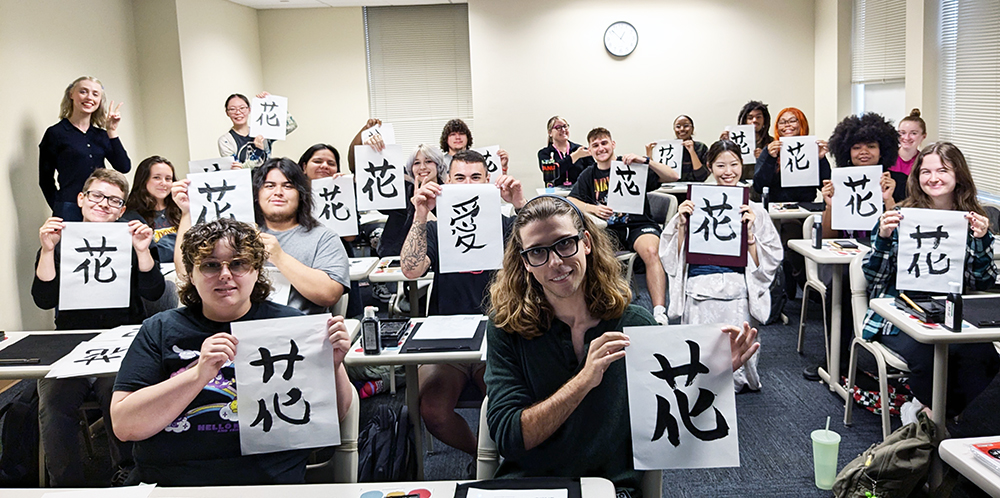
Students in the Japanese Culture course share their handpainted calligraphy art. Megumi Hayashida of Totonou Meditation was a guest speaker and taught students about the history and evolution of the Japanese art form.
"Not everyone has the opportunity to hop on a plane and go to Japan tomorrow – I wanted to bring Japan to my students."
Logre Abdis '27 and Ryan Milazzo '26 plan to move to Japan after graduation.
Abdis, a broadcast reporting major, aspires to become a Japanese translator or localization specialist. Milazzo, an international business management major and applied computer science minor, plans to continue his education in Japan and enter its workforce or do business internationally across Asia. He will intern with the Japan-America Society of Pennsylvania this spring.
When the School of Arts & Sciences' Department of Literature, Culture and Society offered an elective modern languages course focused on the island country in East Asia, both students jumped at the opportunity to deepen their understanding of their dream destination.
Japanese Culture, taught by lecturer Rosita Grigaite, is a study of the culture of Japan with an emphasis on the historical development and underlying dynamics of the Japanese worldview. Education, child-rearing, business practices, morality, relationships, language and the arts are among the topics the class studied throughout the semester.
"As I have always been intrigued by the country’s culture and was already studying the language, I figured that the class would be a perfect fit for me," said Abdis, a Patterson Mill High School graduate. "I’m glad I registered for it early as an Honors Program student – most of the slots were filled just five minutes after registration opened!"
"I was ecstatic to see this new course offered and couldn’t wait to gain a better understanding of the Japanese way of life," said Milazzo, a Plum Senior High School graduate.
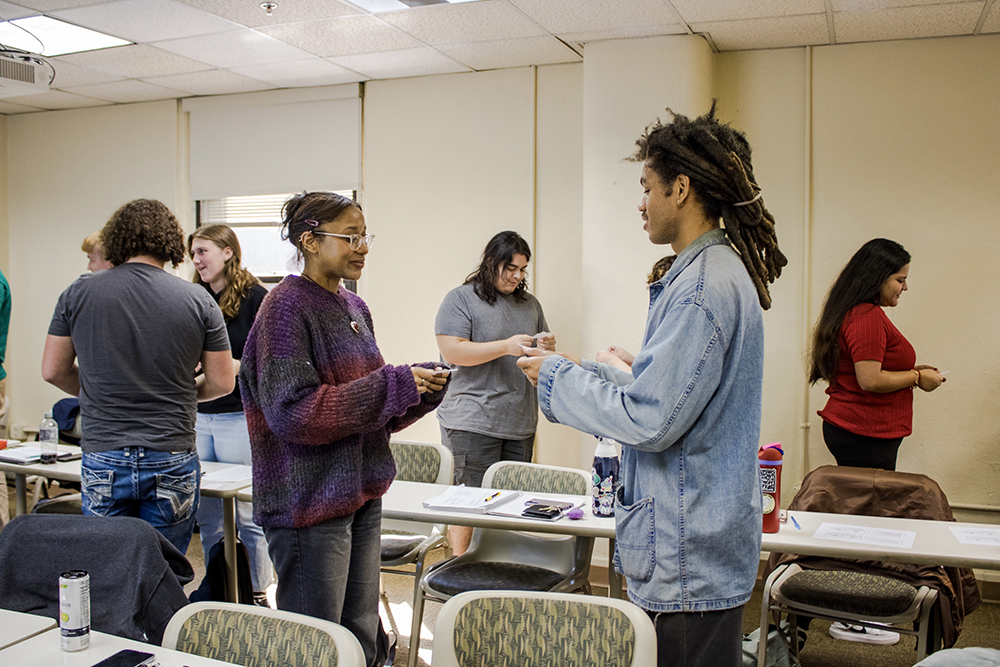
Grigaite spent over a decade studying East Asia and living, studying and working in Japan, Hong Kong and Vietnam. When she moved to the U.S. a year and a half ago, she knew she wanted to share her passion for Japan with her students.

"Not everyone has the opportunity to hop on a plane and go to Japan tomorrow – I wanted to bring Japan to my students," she said. "Japan is more than just anime, manga and our idea of what it is or what the media tells us. If my students leave the classroom with a clear idea of why Japan functions the way it does, why people interact the way they do and why we can see Hokusai’s 'The Great Wave Off Kanagawa' on totes and notebooks in the U.S. – I am satisfied as a teacher."
Grigaite said the course helped her build a deep bond and trust with her students as they reflected on their experiences, shared their perspectives and asked challenging questions.
"Seeing them learn calligraphy, try whisking their own matcha, practice meditation and learn how to exchange business cards in a Japanese manner for the first time moved me," she said. "The cultural interactions between my students and the course's Japanese guest speakers were invaluable experiences."
Grigaite is excited to teach a Contemporary Japanese Literature course in the spring.
In the Q&A below, Abdis and Milazzo share their positive learning experience in this distinctive course.
What lessons or activities did you enjoy the most in Japanese Culture?
Abdis: My favorite lessons were the experiential learning activities, such as the tea ceremony and calligraphy lessons. Participating in these activities rather than just listening to a lecture about them made a difference in my understanding of the concepts.
Milazzo: The in-class calligraphy (書道) integrated with why they write certain ways and the moral logic and messages behind each brush stroke, astonished me. Another favorite was learning about the way business is conducted in Japanese culture. We learned business card culture (名刺) and the etiquette behind it. I learned about the steps I'll need to take to pursue employment in Japan or with Japanese companies. It was impressive to hear it all firsthand and network with a Japanese salaryman,(サラリーマン).
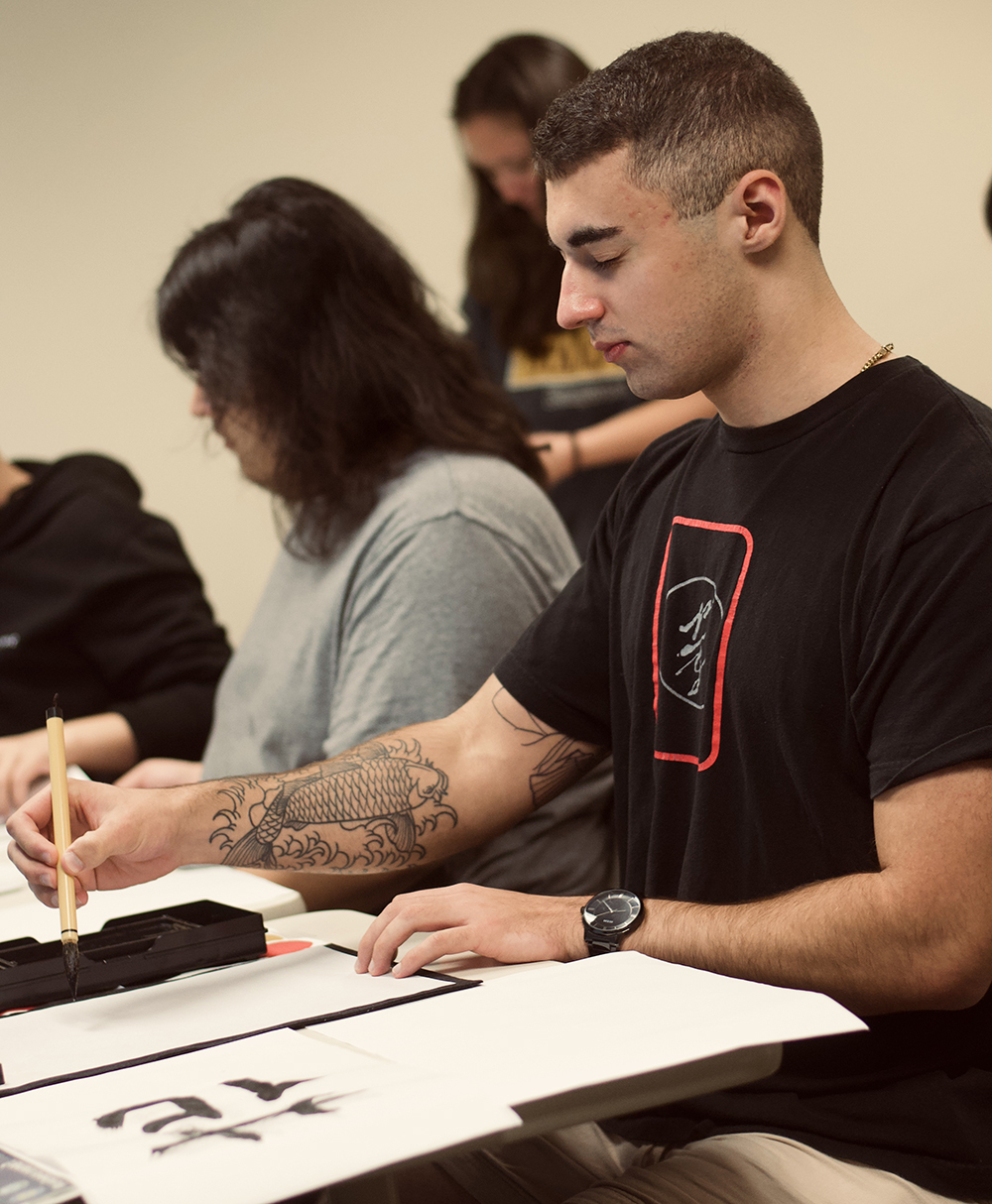
What are your key takeaways from the class?
Abdis: My biggest takeaway is the depth of Japanese culture beyond its pop culture representations. Being introduced to the culture through manga and anime gave me more of an idealized look into what everyday life is like, but this class taught me that there is much more to it than that. Learning different topics each class gave me the chance to experience various facets of Japanese culture, from history to professional everyday life.
Milazzo: My biggest takeaway was learning about the history of Japan and how it developed as a society. I am usually not interested in history courses in general, but the way the material was taught in the course connected it all in a way that made it intriguing and fascinating.
This course has taught me to keep the open mind that I have, and I realized how fortunate I am to have a genuine interest in learning new things outside of my comfort zone. This course allowed me to experience peace and tranquility through learning about Japanese culture from the ground up.
Was there a particular moment that made you realize this class was a great choice?
Abdis: Getting to know Professor Grigaite throughout the semester has been the most significant highlight for me. Without her, I’m sure I would have enjoyed the class, but her enthusiasm is incredible. She injects life into every topic while keeping complex subjects easily understandable. I would love to take another class with her.
Milazzo: Whenever I learned phrases or ethical ideologies in class, it allowed me to reflect on the beauty of expression and social interactions.
What’s something about Japanese culture or history that you look forward to studying more or sharing with others?
Abdis: I plan on researching the history of the country more. We covered many distinct periods in class, and I’m sure we only scratched the surface. I love learning about history.
Milazzo: I plan to continue my education in Japan after graduation and pursue employment. I look forward to continuing my studies until I reach that goal. I aspire to share the beauty and nature of Japanese culture and language with others as a professor someday.
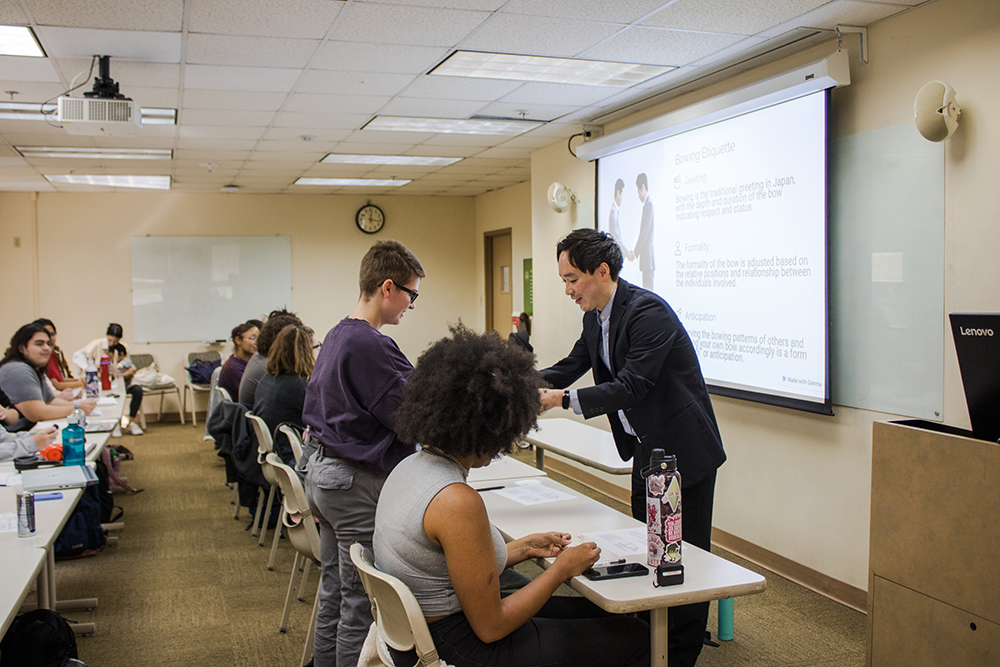
How do you see yourself applying this knowledge to studies in your major or other academic/professional pursuits?
Abdis: Because I want to pursue a career that involves the professional side of Japan, this class gave me a great introduction to some of the etiquette I will have to study for the future. It also motivated me to ramp up my studies of the language to prepare for a job there after college.
Milazzo: Understanding all things Japanese will help elevate my skills and cultural awareness for when I relocate there to study and work.
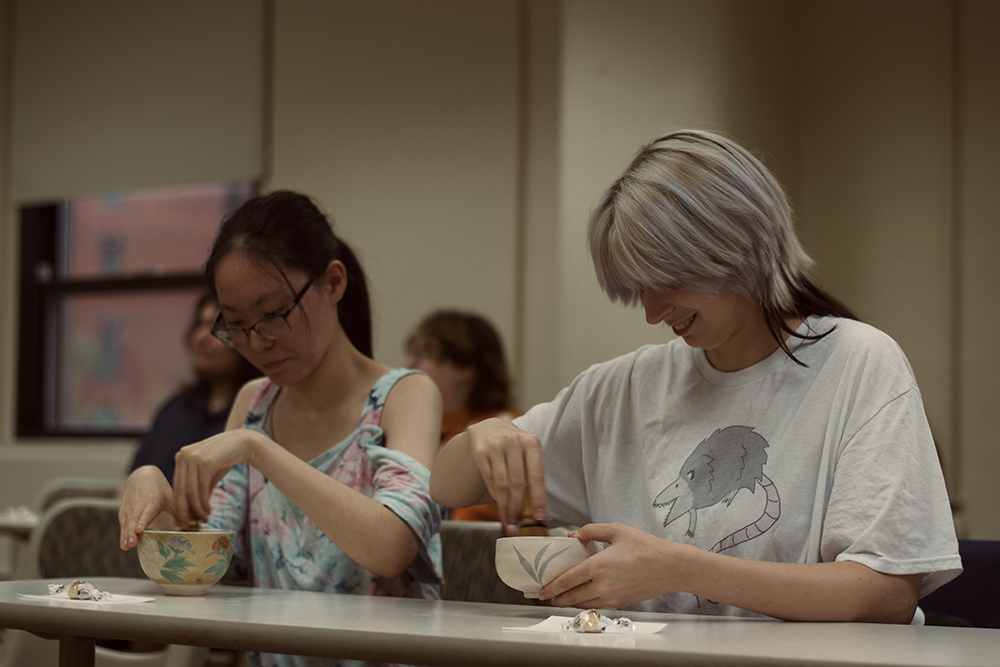
Why would you recommend Point Park to a prospective student?
Abdis: I would recommend Point Park for many of the same reasons that drew me to the University in the first place. So many outside opportunities are available for all kinds of majors since we are located right in Downtown Pittsburgh. The University itself provides even more opportunities. Plus, being such a small college compared to others in the area means that students really connect with their professors and network for their future careers.
Milazzo: Point Park's small size helps you build connections you won't find at larger universities. You truly do feel like somebody at this University. You feel and see your changes, efforts and desires come to life, and the faculty do their absolute best to make sure that happens for every student.

